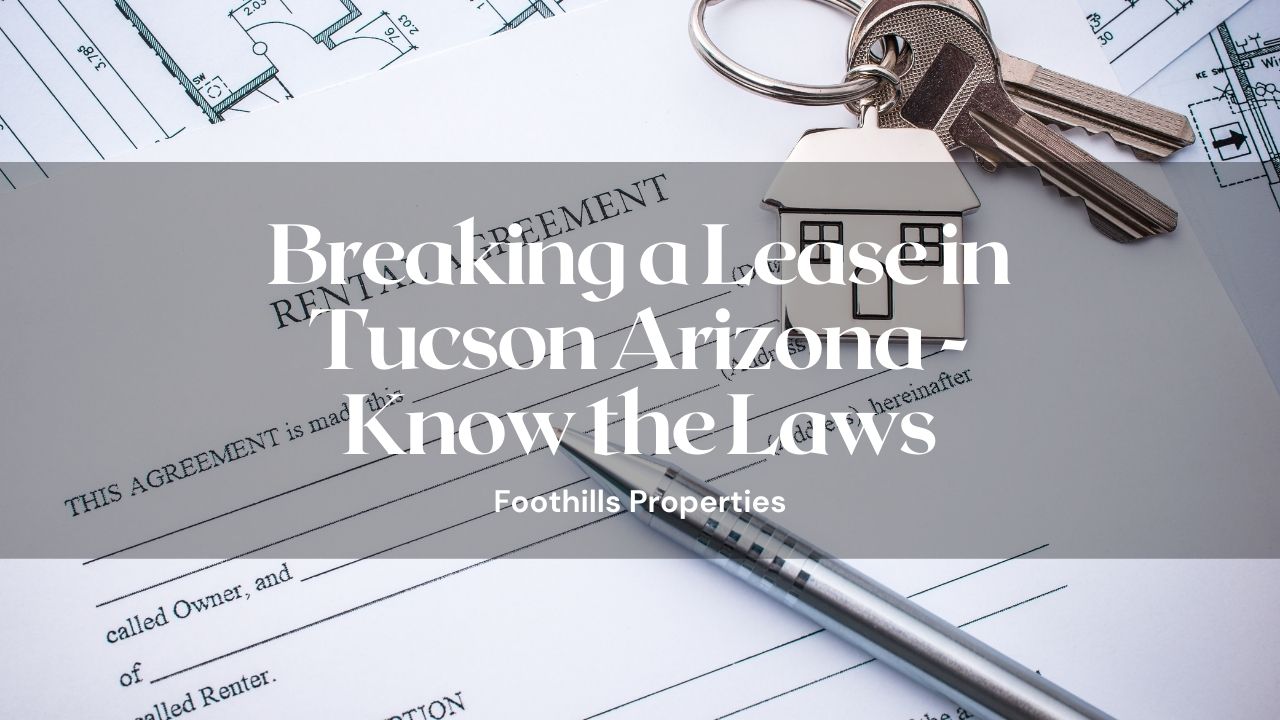
Usually, most tenants who sign a rental lease agreement in Arizona intend to stay for the entire lease period.
But despite the good intentions, life happens, and it can force a tenant or landlord to break a lease or terminate their lease agreement with written notice. Some of the reasons landlords might face for breaking a lease in Arizona include:
Job transfer or job loss
Divorce
Upsizing or downsizing
Military service
Landlord repeatedly violates the tenant's privacy
Habitability issues
Domestic violence
Clearly, the reasons can be many and varied. Regardless of the reason, however, breaking a lease is the biggest possible violation of a lease or rental agreement. After all, a lease legally is a contractually binding agreement between both the landlord and tenant.
Whether or not to penalize your tenant depends on their reason for breaking the lease agreement. If legally justified, then you cannot penalize them for doing so under Arizona landlord-tenant law. But if their reason is legally unjustified, then you can hold the tenant liable for lost income under the lease agreement.
Insufficient Justification for Breaking a Lease in Arizona
The following reasons generally don’t offer legal protection to a tenant breaking their lease or rental agreement in Arizona. They include:
Moving closer to family
Moving in with a partner
Divorce or separation
Upgrading or downsizing
Relocating for a new job or school
Moving to a new house they bought
In such cases, the landlord may be able to hold a tenant liable for lost income under the lease agreement. In the case of breaking a lease, it will be the tenant's responsibility to pay rent for the remaining lease term.
Sufficient Justification for Breaking a Lease in Arizona
There are a handful of scenarios where an Arizona tenant can break a lease legally and without penalty.
Under Arizona laws, the landlord must follow the conditions outlined, and if the landlord fails to meet certain obligations, tenants may break the lease early without penalty to the landlord.
In some cases, the landlord may also be required to provide the tenant with the opportunity to break the lease or lease termination. The conditions are as follows:
1. There Is an Early Termination Clause
Some landlords choose to include an early lease termination clause in modern rental agreements. The purpose of the early termination clause is to provide the tenant an option to legally break their lease early and without penalty. This does not, of course, apply to security deposit laws. The tenant must, however, meet certain requirements.
One of the requirements is paying a fee. Broadly speaking, the fee is typically equivalent to the rent of two months. Another requirement is proper written notice.
This is important, as an Arizona landlord, you don’t want to get stuck with a vacant rental for long after the tenant has moved out. You want to begin marketing the property before the tenant moves out. A written notice of 30 days to break the lease is standard.
2. The Tenant Is Starting Active Military Duty
Active servicemembers who are being deployed or receive permanent change of station orders are protected by the Servicemembers Civil Relief Act (SCRA). The protection starts from the date they enter active duty and ends ninety days after being discharged.
In Arizona, the term “servicemember” is defined as those belonging to:
Activated National Guard
Armed forces
Commissioned corps of the Public Health Service
Commissioned corps of the National Oceanic and Atmospheric Administration
Before Arizona tenants can legally break a lease early, they must, first of all, meet certain requirements. One, they must show their landlord proof that they intend to remain in active duty for a minimum of 90 days.
Two, tenants must prove that they signed the rental contract before they entered active duty. And three, they must submit the proper notice to their landlord alongside copies of their deployment letters.
3. The Property Isn’t Habitable
As an Arizona residential landlord, you have an obligation to provide your Arizona tenant with a habitable property. (Ariz. Rev. Stat. Ann. §§ 33-1324).
Every state has specific housing codes that every rental unit must meet. The following are some characteristics of a habitable unit or property:
Reasonable protection against criminal intrusion
Protection from environmental hazards such as mold, asbestos, and lead
Sturdy floors and walls that aren’t in danger of imminent collapse
Reliable heat and sufficient hot water
A roof that keeps out rain and snow
Properly maintained common areas, such as stairways and hallways
Properly maintained plumbing, electrical, heating, and ventilating and HVAC systems
If you fail in the aforementioned responsibilities, your tenant may be seen as “constructively” evicted and they will have no remaining rent obligations
Aside from being able to terminate the lease without liability for future rent, tenants may also have the option of:
Suing the landlord for providing an unlivable rental property
Paying for the repairs themselves and then deducting the costs from their rent
Withholding all future rent payments until you have fixed the habitability issue
4. Violation of the Tenant’s Privacy
The laws dictate that landlords have a right to enter their tenant's rental unit under certain conditions.
However, you must do so only after providing notice to your tenant of your intention to enter the property to avoid any claims of landlord harassment. This ensures that the tenant is aware of the entry notice and can prepare accordingly to avoid any claims of landlord harassment.
The following are common reasons why an Arizona landlord may need to enter their tenants’ premises, ensuring that these entries are conducted respectfully to avoid any claims of landlord harassment: providing notice for necessary repairs, checking for safety issues, or confirming that tenants pay their rent on time as outlined in the rental agreement. Additionally, landlords may need to enter the property if there is a court order requiring them to do so.
To show the rental unit to a prospective tenant or buyer
Inspect the rental property for maintenance and safety issues
Under the orders of a court
In cases of emergencies
If given permission by the tenant
If the landlord has sufficient reasons to believe the tenant has abandoned their rented premises
Except in cases of emergencies, Arizona landlords must notify their tenants prior to entering their premises. Specifically, you must provide your tenant with a notice of at least 2 days prior to the entry. (Ariz. Rev. Stat. Ann. §§ 33-1343(D)).

Tenant privacy laws, however, don’t specify the exact hours the landlord must access a rented property. Nonetheless, the entry times for tenants must be reasonable.
If a landlord fails to provide their tenant with advance notice multiple times, the tenant may have two options to consider. One of these options is for the tenant to sue the landlord for invasion of privacy or illegal trespassing.
Secondly, the tenant may choose to break a lease in Arizona and move out of the property without further obligations to the lease agreement, such as paying rent.
5. The Tenant Is a Domestic Violence Victim
Domestic violence victims have special rental provisions in Arizona. As per (Ariz. Rev. Stat. Ann. §§ 33-1318(A)), they can terminate their lease without penalty so long as they follow proper procedure.
As a landlord, you have a right to require proof of their domestic violence status before the next rent period begins.
A Landlord’s Duty to Find a Replacement Tenant
Under Arizona law, landlords have a responsibility to “mitigate damages” after tenants break a legal lease agreement in Arizona. (Ariz. Rev. Stat. § 33-1370). You might have to find a replacement tenant for this reason. Regardless of the reason for breaking the lease early, a tenant may not be required to pay all the rent due under the lease.
Bottom Line: Breaking a Lease Early in Arizona
Breaking a lease or rental agreement in Arizona involves many legal nuances. As a landlord, you may come across any number of reasons for why this may occur.
However, by knowing your rights and the rights of your tenants, you can make this process as smooth as possible in case your tenant or landlords need to terminate their lease early.
Disclaimer: This blog isn’t a substitute for professional legal advice. For further help, consider hiring a qualified attorney or an experienced property management company directly, like Foothills Properties.








